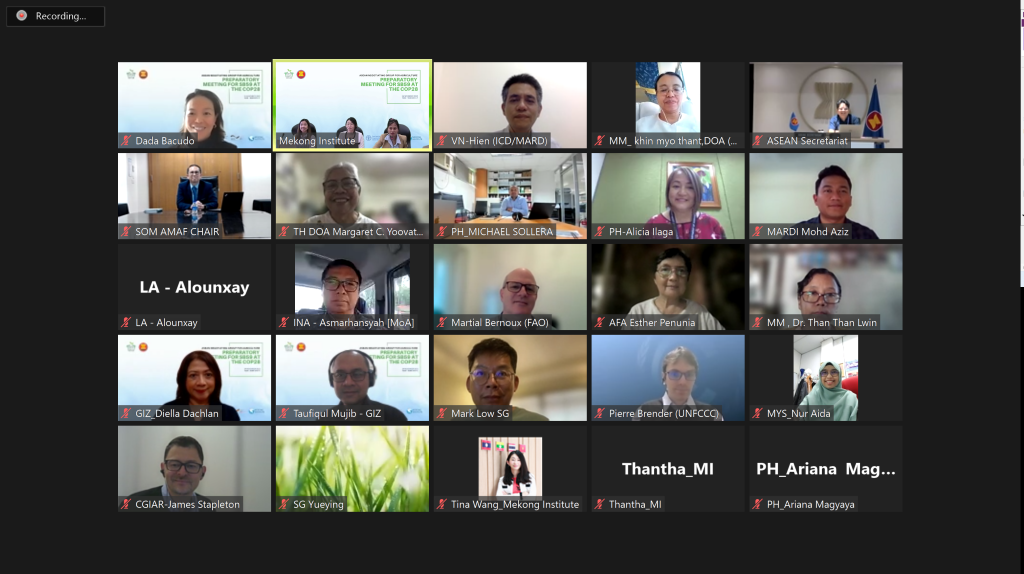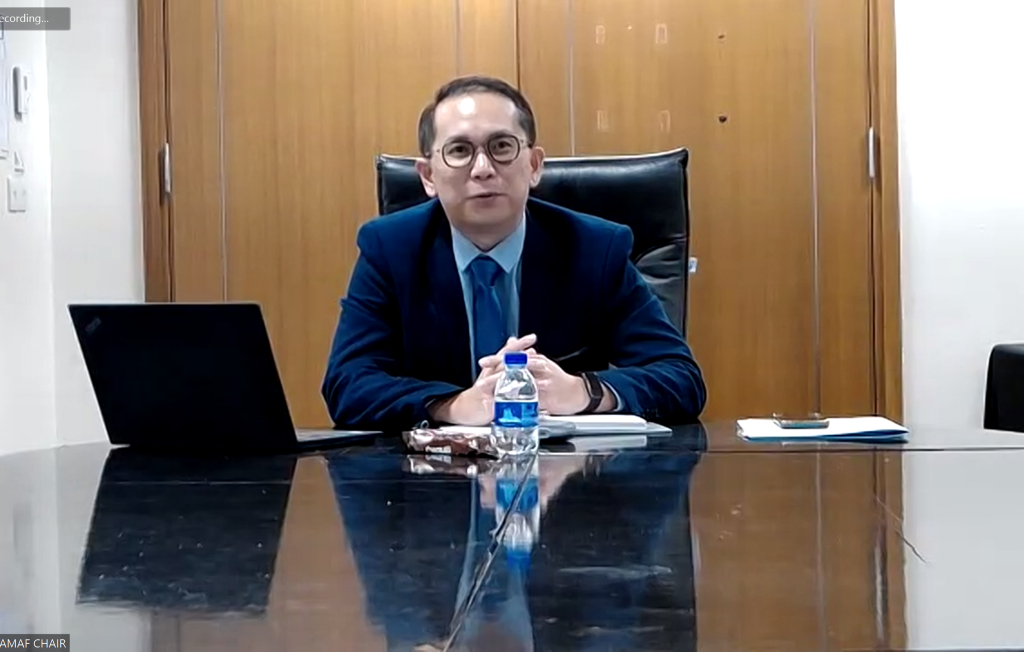
In preparation for the Conference of the Parties (COP28) to be held in Dubai, United Arab Emirates from November 30 to December 12, the ASEAN Negotiating Group for Agriculture (ANGA) Focal Points gathered virtually on 24 November 2023 to gear up for the negotiations, ensuring a united stand in pushing for sustainable and resilient agricultural climate action.
The meeting brought together ANGA focal points from the ASEAN Member States and representatives from the ASEAN Secretariat – Food, Agriculture and Forestry (FAF) Division, the United Nations Framework Convention on Climate Change (UNFCCC) Secretariat, development partners, and non-state actors.
The meeting, chaired by Mr. Yee Chen Hua, Policy and Strategic Planning Division Principal Assistant Secretary of Malaysia’s Ministry of Agriculture and Food Security, discussed the overview of COP28 agenda. Mr. Pierre Brender from the UNFCCC Secretariat, provided an update on the forthcoming formal negotiations regarding joint work on implementing climate action for food security. His presentation covered topics such as the need for consensus on workshop elements, operationalizing the conference online portal, and the challenges faced during the previous session (SB58).

The meeting also debriefed and informed ANGA Focal Points of the results of the First Informal Expert Dialogue on the Sharm El Sheikh Joint Work on the Implementation of Climate Action in Agriculture and Food Security that was held on October 30 – November 3, 2023 in Rome.
Reporting back from Rome, Dr. Margaret Yoovatana, ANGA Focal Point from Thailand, highlighted three focus areas to consider including the workshop list, the report synthesis, and the conference portal. She also underscored the need for implementation or scaling up of climate actions within the limited 3-year timeframe, prioritizing activities, especially those related to policies.
Mr. Martial Bernoux from the Food and Agriculture Organization (FAO) shared his insights on the agenda of the first informal dialogue, which focused on implementation, roles of different actors, timelines, and decision aspects. Key points discussed included the meaning of implementation, the short timeline for decision-making, and the need for clear direction for the Secretariat to prepare for the next session
A representative of the Consultative Group for International Agricultural Research (CGIAR), Mr. Mr. James Stapleton, chimed in the discussion and highlighted the support offered by relevant international organizations to parties on the ground and encouraged participants to consider these organizations for policy, evidence, and guidance.
One of the highlights of the meeting was hearing the voices of non-state actors, shedding light on their perspectives and providing valuable context to inform specific stances during negotiations. Ms. Esther Penunia from the Asia Farmers Association presented key messages and recommendations from Southeast Asian farmers, highlighting the urgent need for collective action in response to climate change. The recommendations included a call for direct climate financing for adaptation, emphasis on a legal framework for small-scale farmers’ access to productive resources, and a fund for loss and damage based on climate justice principles.
Mr. Clement Metivier from the World Wild Fund for Nature (WWF) shared critical messages from over 80 civil society organizations, urging COP28 negotiators to integrate a food systems approach into discussions.